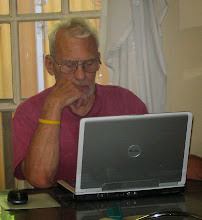Broadcasting:
The Fairness Doctrine
The old Fairness doctrine was in place throughout my career in broadcasting. I hated it worse than anything I ever encountered as a broadcaster. It totally robbed us of the ability to speak out on matters we believed to be politically important.
Broadcast news people are often the best informed segment of our population. How often have you heard someone ask, "Did you hear the news report about..... ". I once could reply, "Hear it? I read it this morning at 6:00 and at 6:30 and at 7:00, ..."
Unlike a print reporter who may have spent most of their day honing a single story, the broadcast news man reads all the stories, from many sources, over and over.
So, doesn't it follow that they would be well equipped to comment on the news? Doesn't matter. If they did comment, they were then beholden to invite some dummy to come on their air and comment with an opposing view. I know many will lawyerly argue that that was not the exact requirement of the rule. But lawyerly opinions are a costly option out of reach of many small broadcasters. If time and money prevent you from getting a reliable legal opinion, you are restricted to a single course of action: Just forget the whole thing. You could not risk jeopardizing your license or even exposing your station to the need to hire the lawyers you could not afford in the first place.
The Unfairness Doctrine.
In the first place, who ever came up with the idea that the airwaves belong to the people? I was part of a group that sought to build a new radio station. We spent thousands of dollars over seven years, trying to get a license. Our application appeared to portend a profitable operation, so another group decided to ask the FCC for a licence in the same place, same frequency, same power. Being first didn't matter. The FCC scheduled a "Comparative Hearing", an opportunity for a handfull of dumb bureaucrats to decide which applicant would best serve the interest of the public residing within the coverage area of the proposed facility.
In such cases, an "Examiner" is appointed to conduct the hearing. In our case, the chosen idiot would ask a question like "How many other radio stations serve this area?" To answer that question required that each applicant employ a professional engineer to do a detailed study to plot the coverage area of every radio station which reached this particular swatch of geography. I no longer remember exactly how many thousands of dollars that cost. To my knowledge, the Examiner never looked at the results
In preparing our application, I was required to submit a personal biography. I wrote out a page, briefly outlining my broadcast experience. Our Washington law firm glanced at it and smiled. "They don't read these things", they told me, "they weigh them." Go back and write everything you can think of that may conceivably contribute to your experience as a broadcaster. Hm, I thought. I once stood on the sidewalk and watched General Dwight Eisenhower ride by in a victory parade held for him at the end of World War II. Does that qualify as a close association with the Supreme Allied Commander and president-to- be?
Well, the FCC granted the license to the other applicant. I read their reasons and said, "Wait a minute.... you overlooked... " The FCC agreed, withdrew the license from the other applicant and threw the entire matter back into hearing. Our attorneys, weary of seeing us squander our meager fortunes, told us to merge with the other applicant. We did, which meant everyone's interest was halved.
To finish the story, we put the station on the air and it was an instant success. But, four months after the station began broadcasting, Washington closed the Air Force Base in our city and the local economy tanked. We struggled for seven more years but never made another dime of profit. Broke and exhausted, we sold the station for about the cost of the land where the transmitter was built, and left town. Fourteen years, down the tubes.
But, I digress. While we were on the air, we built a fabulous news reporting machine. Our regular staff, largely eager, young, unmarried men and women, worked countless overtime hours without pay, for the sheer joy of accomplishing something excellent in broadcasting.
We used to say that if you hear sirens in this community, turn on your radio. Within minutes you would know why and to where the emergency vehicles were responding.
This was the Viet Nam era. At one point a group of Southeast Asian journalists were brought through our city while on a U.S. tour. I was privileged to spend several hours in serious discussion with an editor from a Saigon newspaper, learning his perspective of the war, why it was important for the U.S. to help the South Viet Namese. But if I wanted to talk about it, I would have to invite a local war protestor to present an opposing view.
I attended every political rally in our area for three major elections. I had interviewed every candidate for every state or local office, and every Congressional race. I had a wealth of information about the candidates and the issues. But if I wanted to broadcast commentary, I would have to contact each opposing campaign and offer a chance to rebut.
If, indeed, some modern politician speaks of reviving the Fairness Doctrine - in any form - please oppose it. Or you will forever end the ability of broadcasters to share their knowledge in the discussion of any serious issue.
Tuesday, November 25, 2008
Subscribe to:
Post Comments (Atom)

No comments:
Post a Comment